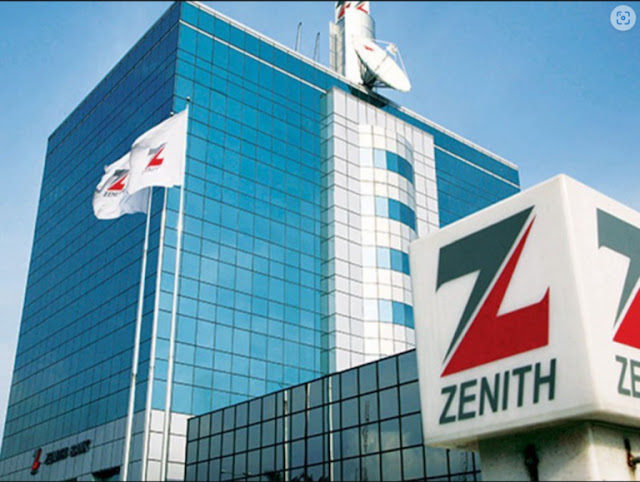LAGOS, Nigeria – August 25, 2025 – The Nigerian All-Share Index (ASI) staged a notable recovery on Friday, August 22, 2025, climbing 671.70 points to close at 141,004.14, a 0.48% increase from Thursday’s close of 140,332.40. This uptick, which reversed three consecutive days of losses, was accompanied by a significant surge in trading activity, with investors exchanging 1.3 billion shares across 25,916 transactions, compared to 573.6 million shares the previous day. Market capitalization reached N89.2 trillion, inching closer to the N90 trillion threshold. Financial stocks, led by Zenith Bank and FCMB, dominated trading, while companies like FTN Cocoa and Beta Glass topped the gainers’ chart. This report provides an in-depth analysis of the market’s performance, key drivers, sectoral dynamics, and the broader economic context shaping investor sentiment in Nigeria.
A Rebound in the Nigerian Equities Market
The Nigerian Exchange Limited (NGX) closed the week on a positive note, with the All-Share Index (ASI) rising by 0.48% to 141,004.14 points on Friday, August 22, 2025. The 671.70-point gain marked a reversal of the bearish trend that had gripped the market for three consecutive days, driven by macroeconomic pressures and profit-taking. The uptick reflects renewed investor confidence, spurred by bargain hunting in key financial and consumer goods stocks, as well as expectations of improved corporate earnings.
Trading activity saw a significant boost, with 1.3 billion shares exchanged, more than doubling the previous session’s volume of 573.6 million shares. The 25,916 transactions recorded on Friday indicate heightened investor participation, particularly in high-volume stocks like Zenith Bank and FCMB. Market capitalization stood at N89.2 trillion, a marginal increase from the previous day, signaling a potential rebound toward the N90 trillion mark, which analysts view as a psychological threshold for the market.
The positive close on Friday comes amidst a challenging economic environment in Nigeria. The National Bureau of Statistics (NBS) reported a headline inflation rate of 21.88% in July 2025, down slightly from 22.22% in June, but still reflective of persistent price pressures. Diesel prices surged by 29.72% year-on-year to N1,789.45 per litre, increasing operational costs for businesses and eroding investor confidence. The Central Bank of Nigeria’s (CBN) high interest rate policy, with the Monetary Policy Rate at 26.75%, has made fixed-income securities more attractive, diverting capital from equities. Despite these headwinds, the market’s performance on Friday suggests that investors are cautiously optimistic about a recovery, driven by strong fundamentals in select sectors.
Top Gainers and Losers: A Diverse Performance
The day’s trading saw significant price movements across various stocks, with FTN Cocoa, Beta Glass, Veritaskap, and UPDC emerging as the top gainers, each appreciating by 10%. FTN Cocoa, a key player in the agricultural processing sector, benefited from growing investor interest in agro-allied companies, driven by Nigeria’s push for agricultural diversification. Beta Glass, a manufacturer of glass containers, saw strong demand due to its role in the consumer goods supply chain, particularly for beverages. Veritaskap, a financial services firm, and UPDC, a real estate company, also attracted buying interest, reflecting optimism about their growth prospects.
On the downside, Thomas Wyatt Nigeria and MCNICHOLS led the laggards, shedding 9.91% and 7.51% respectively. Thomas Wyatt, a paper and publishing company, has faced challenges due to rising production costs and competition, while MCNICHOLS, a consumer goods firm, may have been affected by profit-taking after recent gains. The divergence between gainers and losers highlights the selective nature of investor activity, with a focus on fundamentally strong stocks in resilient sectors.
Financial Stocks Drive Trading Activity
Financial stocks dominated the trading floor, with Zenith Bank leading both the volume and value charts. The tier-1 bank recorded trades of 345.5 million shares worth N21.2 billion, underscoring its position as a market bellwether. Zenith’s strong performance was driven by its robust financials, consistent dividend payouts, and leadership in digital banking, which have made it a favorite among institutional and retail investors. FCMB Group followed closely, with 335.9 million shares traded, valued at N3.5 billion, reflecting its growing retail banking footprint and diversified operations.
AIICO Insurance secured the third spot with 43.7 million shares, driven by investor confidence in the insurance sector’s recapitalization efforts. Nigerian Breweries, a leading consumer goods company, traded 43.2 million shares worth N3 billion, buoyed by resilient demand for its products despite economic pressures. WAPIC Insurance rounded out the top five, with 33.3 million shares traded, benefiting from the same regulatory tailwinds as AIICO.
In terms of value, Transpower, a power sector company, recorded N8.5 billion in trades, reflecting growing interest in infrastructure-related stocks. GTCO, another tier-1 bank, contributed N1.4 billion, driven by its strong brand and financial performance. The dominance of financial stocks in both volume and value highlights their resilience in a volatile market, as investors seek stability in well-regulated sectors with strong fundamentals.
Performance of SWOOTs: Mixed Results
Stocks Worth Over One Trillion Naira (SWOOTs), which include Nigeria’s largest and most liquid companies, displayed mixed performance. International Breweries led the pack with a 4% gain, reflecting strong demand for its beer and beverage products. Fidelity Bank rose by 0.72%, supported by its retail banking growth, while BUA Foods gained 0.34%, driven by stable demand for its food products. Zenith Bank’s 2.49% appreciation and GTCO’s 1.35% increase further underscored the strength of the banking sector, with Access Corporation posting a modest 0.19% gain.
Conversely, Lafarge Africa dipped by 1.82%, likely due to rising production costs in the cement industry, exacerbated by high diesel prices. UBA slipped by 0.1%, reflecting profit-taking after recent gains, while First HoldCo closed flat, indicating limited investor interest. The mixed performance of SWOOTs highlights the uneven impact of macroeconomic challenges, with consumer goods and banking stocks outperforming industrial and other sectors.
Sectoral Dynamics: Financials and Consumer Goods Shine
The Financial Services Industry, encompassing banks and insurance companies, continued to dominate the NGX, as evidenced by the high trading volumes of Zenith Bank, FCMB, and AIICO. The sector’s resilience is attributed to strong corporate governance, regulatory support, and growing adoption of digital financial services. The insurance sub-sector, in particular, has benefited from the National Insurance Commission’s recapitalization mandate, which has spurred mergers and acquisitions and boosted investor confidence in firms like AIICO and WAPIC.
The Consumer Goods Industry also performed well, with Nigerian Breweries and International Breweries driving activity. The NGX Consumer Goods Index’s 0.83% rise reflects the sector’s defensive nature, as demand for essential goods like food and beverages remains relatively stable despite economic pressures. The NGX Growth Index, which tracks small and mid-cap companies, surged by 4.14%, signaling investor interest in emerging firms with high growth potential, such as Veritaskap and UPDC.
Other sectoral indices, including NGX Banking, NGX Insurance, NGX Industrial Goods, and NGX Oil & Gas, faced downward pressure, reflecting broader market challenges. The NGX ASeM and NGX Commodity indices remained flat, indicating limited activity in these segments. The mixed sectoral performance underscores the need for diversified investment strategies to navigate Nigeria’s volatile market.
Economic Context: Macroeconomic Headwinds Persist
The NGX’s rebound on Friday must be viewed against the backdrop of Nigeria’s challenging economic environment. The NBS’s July 2025 data highlights persistent inflationary pressures, with headline inflation at 21.88% and food inflation at 22.74%. The 29.72% year-on-year increase in diesel prices to N1,789.45 per litre has raised operational costs for businesses, particularly in manufacturing and logistics, impacting corporate profitability. The naira’s 41.4% depreciation in 2024 has further increased the cost of imported inputs, squeezing margins for companies reliant on foreign goods.
The CBN’s tight monetary policy, with the Monetary Policy Rate at 26.75%, has made borrowing more expensive, deterring investment in equities and favoring fixed-income securities. The World Bank’s estimate that 38.9% of Nigerians live below the poverty line underscores the socio-economic challenges limiting retail investor participation. Global factors, including volatility in oil prices and geopolitical uncertainties, have also weighed on the NGX, as Nigeria’s economy remains heavily dependent on oil exports.
Despite these challenges, the market’s performance on Friday suggests that investors are seizing opportunities in fundamentally strong stocks. The surge in trading volume indicates bargain hunting, particularly in financial and consumer goods stocks, which are seen as safe havens amid uncertainty. Analysts are cautiously optimistic that continued positive sentiment could push the ASI toward the 142,000-point level, provided macroeconomic conditions stabilize.
Stakeholder Reactions: Optimism and Caution
The market’s rebound elicited mixed reactions from stakeholders. Financial analyst Dr. Joseph Anzaku described the 0.48% gain as a “welcome relief” after days of losses but cautioned that sustained recovery depends on addressing macroeconomic challenges. “The financial sector’s strength is encouraging, but we need broader sectoral participation to drive a robust rally,” he said. Retail investors, like Amina Suleiman in Lagos, expressed hope that the uptick signals a turning point. “I’m glad to see Zenith and FCMB doing well, but the market is still unpredictable,” she said.
Institutional investors, such as pension fund managers, remain focused on long-term value. “We’re investing in stocks with strong fundamentals, like Zenith and Nigerian Breweries, to weather the volatility,” said a fund manager who requested anonymity. The Securities and Exchange Commission (SEC) emphasized the importance of investor education, stating, “We’re working to empower investors with the knowledge to navigate these turbulent times.”
Market observers also highlighted the role of corporate earnings in driving sentiment. “The upcoming Q3 earnings season will be critical,” said Dr. Mary Adikwu, an economist at Lagos Business School. “Strong results from banks and consumer goods firms could sustain this momentum.”
Implications for Investors and the Economy
The NGX’s performance on Friday has significant implications for investors and Nigeria’s economy. The 0.48% gain in the ASI and the surge in trading volume signal renewed investor interest, particularly in financial and consumer goods stocks. However, the bearish trend earlier in the week and the high number of losers indicate persistent risks, requiring cautious investment strategies.
For retail investors, the market’s volatility underscores the need for diversification and a focus on fundamentally strong stocks. Institutional investors, with their long-term outlook, are likely to continue targeting blue-chip stocks like Zenith Bank and Nigerian Breweries, which offer stability and dividends. The dominance of financial stocks highlights the sector’s role as a safe haven, but it also raises concerns about market concentration and the need for broader sectoral growth.
Economically, a vibrant stock market is essential for mobilizing capital, supporting business expansion, and driving job creation. The NGX’s performance reflects the broader challenges facing Nigeria’s economy, including inflation, currency depreciation, and high interest rates. A sustained recovery in the equities market could boost investor confidence, attract foreign capital, and support economic growth. However, this requires coordinated policy efforts to address macroeconomic headwinds.
Policy Recommendations
To sustain the NGX’s recovery and enhance market resilience, the following recommendations are proposed:
Macroeconomic Stabilization: The CBN should continue efforts to curb inflation and stabilize the naira through targeted interventions, such as increasing foreign exchange liquidity.
Promote Sectoral Diversification: The NGX should encourage listings in underrepresented sectors like technology and agriculture to broaden market participation.
Enhance Investor Education: Expand financial literacy programs to empower retail investors with the knowledge to navigate market volatility.
Support SMEs: Introduce incentives for small and medium enterprises to list on the NGX, boosting liquidity and growth potential.
Strengthen Corporate Governance: Regulatory bodies should enforce stricter governance standards to enhance investor trust in listed companies.
Conclusion
The Nigerian All-Share Index’s 0.48% gain on Friday, August 22, 2025, marked a welcome rebound after three days of losses, driven by robust trading in financial stocks like Zenith Bank and FCMB. The surge in trading volume to 1.3 billion shares and the rise in market capitalization to N89.2 trillion reflect renewed investor confidence, with top gainers like FTN Cocoa and Beta Glass leading the charge. However, macroeconomic challenges, including high inflation, rising fuel costs, and currency depreciation, continue to weigh on the market, necessitating cautious optimism.
The dominance of the Financial Services Industry and the mixed performance of SWOOTs highlight the need for broader sectoral participation to sustain growth. As Nigeria navigates its economic challenges, the NGX remains a critical barometer of financial health, with its performance shaping investor sentiment and economic prospects. Policy interventions to stabilize the economy, promote diversification, and enhance investor education are essential to drive a sustained recovery and position the NGX as a catalyst for Nigeria’s growth.







